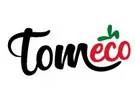From next week, the first mini watermelons, Tomélons, from Tomeco, in collaboration with Coöperatie Hoogstraten, will be back on Belgian shelves. A first this year is that, for the first time, they will be delivered to all of Aldi Belgium's Belgian distribution centres. "In addition, they can also be found for the first time at another retailer, namely Carrefour. Admittedly to a smaller extent, but it shows that the rollout nevertheless was a success. Every year, the popularity grows and for next season too we foresee nice sales again," Tomeco's Tom Verdonck told us.

The Tomélon is a project, which Tomeco and Coöperatie Hoogstraten started a few years ago, because it went well with the cultivation of tomatoes, which is its main business. So the starting shot was fired in 2020 and a trial crop was set up in 2021. In the following years, Tomeco started building it up bit by bit. "Belgian consumers received the product very well, so now we were able to scale up again. Now we have to wait and see what the next few months will bring. The season normally lasts until around the end of September, but the melon is of course a very weather-dependent product. We can always stretch the crops a bit, but sales still drop sharply as soon as pumpkins hit the shelves. Then, the consumer's mind is in autumn mode, and mini watermelons are not a topic anymore."
"For starters, the weather has not been cooperative so far, but better times are predicted anyway," Tom continued. "In any case, the quality is top-notch. We tasted the first melons last week and that won't be a problem. Of course, there has been a lot to do about weather conditions, but on the cultivation side, we are a bit less dependent on that. We can control the variables well. This is something we continue to learn every year, but it does ensure that you can guarantee a homogeneous product of reliable quality."
Tom states that the only thing weather conditions can affect is fruit set. "The growth just continues because we heat and light where necessary. However, settling may be slightly less, because pollinators fly a little less during very dark periods. Then you notice a difference in numbers compared to sunny weeks, but that is certainly not something we have to worry about this year. In fact, as  indicated, we have again scaled up considerably. Compared to last year, we have expanded in acreage to about 1.5 hectares. In this we could also scale up further, but it is important for us to keep this in synergy with market demand."
indicated, we have again scaled up considerably. Compared to last year, we have expanded in acreage to about 1.5 hectares. In this we could also scale up further, but it is important for us to keep this in synergy with market demand."
Ease of use ensures repeat sales
This demand is growing and Tom looks forward to next season. "The Tomélon is starting to become better known among consumers, so people are already looking forward to when they will appear again. Besides, I understood it is quite difficult to grow watermelon in Spain this year. The alternations of hailstorms and very hot periods do not make it any easier to deliver good product. We don't see ourselves as substitutes for the 'regular' watermelon on the shelf, because they are really different products. Nevertheless, we do notice that the choice for a Belgian mini-watermelon can be accelerated if there is less competition."
"Choosing local can also help here, of course. It's definitely a USP that we focus on, because I think we have a lot of ecological advantages over other products in the way we deal with water use and being local," Tom continues. "Only I wonder to what extent consumers look at this when they buy a melon. I think the repeat purchase lies mainly in the benefits in ease of use and taste. Families get smaller and a whole watermelon is then difficult to eat, but these are melons of between 700 and 1.5 kilos. Moreover, they have a normal brix value, but in a more compact size, which makes them even sweeter. This makes them at least as tasty as the product from the south. I think these factors in particular make our position strong."

Export opportunities
All in all, then, this week's start for the Tomélon could be a prelude to more. Whether this scale-up will also bring export markets into sight, Tom does not yet dare to make any predictions about it. "We do notice some interest from abroad, but it is not yet to the extent that we have to create separate transports for it," Tom laughs. "For example, we will offer it on a very small scale in Luxembourg and northern France, but it's not like we will be raiding the German market with Belgian mini watermelons. If the demand is there, we will see where we can scale up, but tomatoes remain our specialisation. So it always has to fit into our partners' schedules. Nevertheless, should the opportunity arise, we will certainly look at where the possibilities lie."
For more information:
Tom Verdonck
Tomeco
+32 3 284 16 84
tom.verdonck@tomeco.be
www.feelgoodtomatoes.com
